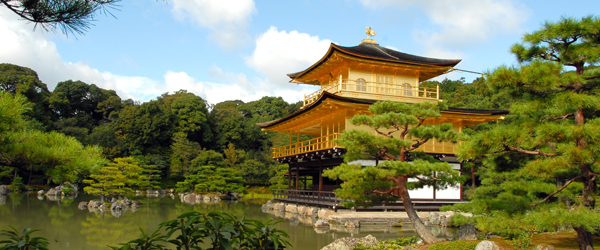Interview with the Consul General of Japan in Vancouver
BCCIE recently had the pleasure of visiting Mr. Seiji Okada, Consul General of Japan in Vancouver, at his Downtown Vancouver office. We wanted to discuss the nature of his role as Consul General and hear his views on the importance of connecting our two nations, especially from an International Education standpoint. Japan and BC enjoy strong bilateral relations based on mutual understanding, commercial ties, and an appreciation for each other’s cultures. BC was the first site of settlement for Japanese immigrants to Canada. Last year marked the 125th anniversary of the Japanese Consulate in Vancouver, the first Japanese government mission in Canada.
Summary of the Consul General’s Mission
Mr. Okada is a gracious, accomplished individual who began his career as a Foreign Service Officer in 1981. He has had many overseas postings, including to Bahrain, Kenya, the US, South Korea, Afghanistan and three postings to Canada. He has been in his present post for over two and a half years. Mr. Okada first visited Canada in 1982 and stayed with a Japanese family in Toronto, where he learned about their difficult lives in Canada during World War II. Mr. Okada had the desire to tell stories just like theirs and preserve the voices of all Japanese Canadians. The population of Japanese residents in BC remains modest, but today Japan is Canada’s fourth largest trading partner and third largest source country for our tourism industry. The current Japanese Canadian population is estimated at over 100,000 and nearly half of these reside in BC.
Speaking to his mission’s goals, Mr. Okada mentions three pillars: Politics, Economy, and Culture. Education, he said, is a major component of culture.
Educational ties between Japan and BC
International Education is a priority under Prime Minister Shinzo Abe’s government. The goal is to double the number of Japanese students studying abroad and the intake of international students into Japan by 2020 – in time for the Tokyo Olympics. The last two decades of recession have slowed Japan’s economy and positioned the country to be “inward looking.” However, now that Mr. Abe is back in office, this is expected to change. “Japan has to be ready for globalization…[and] education is key for younger generations,” said Mr. Okada. As the global economy shifts, more Japanese companies depend on foreign investment and place value on young employees with cross-cultural competencies and language skills.
The Japan Exchange and Teaching (JET) Program, launched by the Japanese Government in 1986 to promote Japanese English education, is a testament to the increased value Japan is placing on foreign languages, notably English. Under this program, teachers from Canada, the US the UK and others, are posted in Japan to teach English to Japanese students. This program has been a resounding success; not only do the Japanese students learn English from native speakers; the English-speaking teachers return to their host countries as intercultural ambassadors of Japan. The Consul General plays an important role advocating for the JET program, which now boasts over 8,500 Canadian alumni.
Encouraging two-way student mobility
As the result of Japan’s increasingly global focus, more Japanese students are studying overseas. Canada, and in particular BC, is one of their top destinations of choice. Safety is a key reason for this. Close proximity is another factor with the many direct flights between Vancouver and Japan. Finally, Japanese students may choose BC – and specifically Vancouver – because of our tolerant nature. BC is very multicultural. “[British Columbians] are patient and kind to those learning how to speak a new language,” said Mr. Okada.
BC is also looking at ways to send more Canadian youth to Japan. Short-term study exchanges such as the Kakehashi Project: The Bridge for Tomorrow help unite Japanese and Canadian students from a young age. To further promote Japan to the BC population, the Consulate General hosts various cultural activities and events throughout the year such as tea ceremonies and Shamisen concerts. These are open to the public. As we leave, Mr. Okada shares his passion for Japanese-Canadian history with the wider community. Last year he launched a six-part seminar series called “Parallel Paths” that examined pre- and post-war ways of life for the Japanese in BC. He plans on writing a book to leave a legacy for Japanese youth to learn more about their origins. “Is there anything else you would like to mention?” we asked Mr. Okada before we concluded. He smiled and spoke at length of his love of the BC lifestyle – skiing, canoeing, and spending time in his vegetable garden. Likely some of the same reasons international students are drawn here as well.



